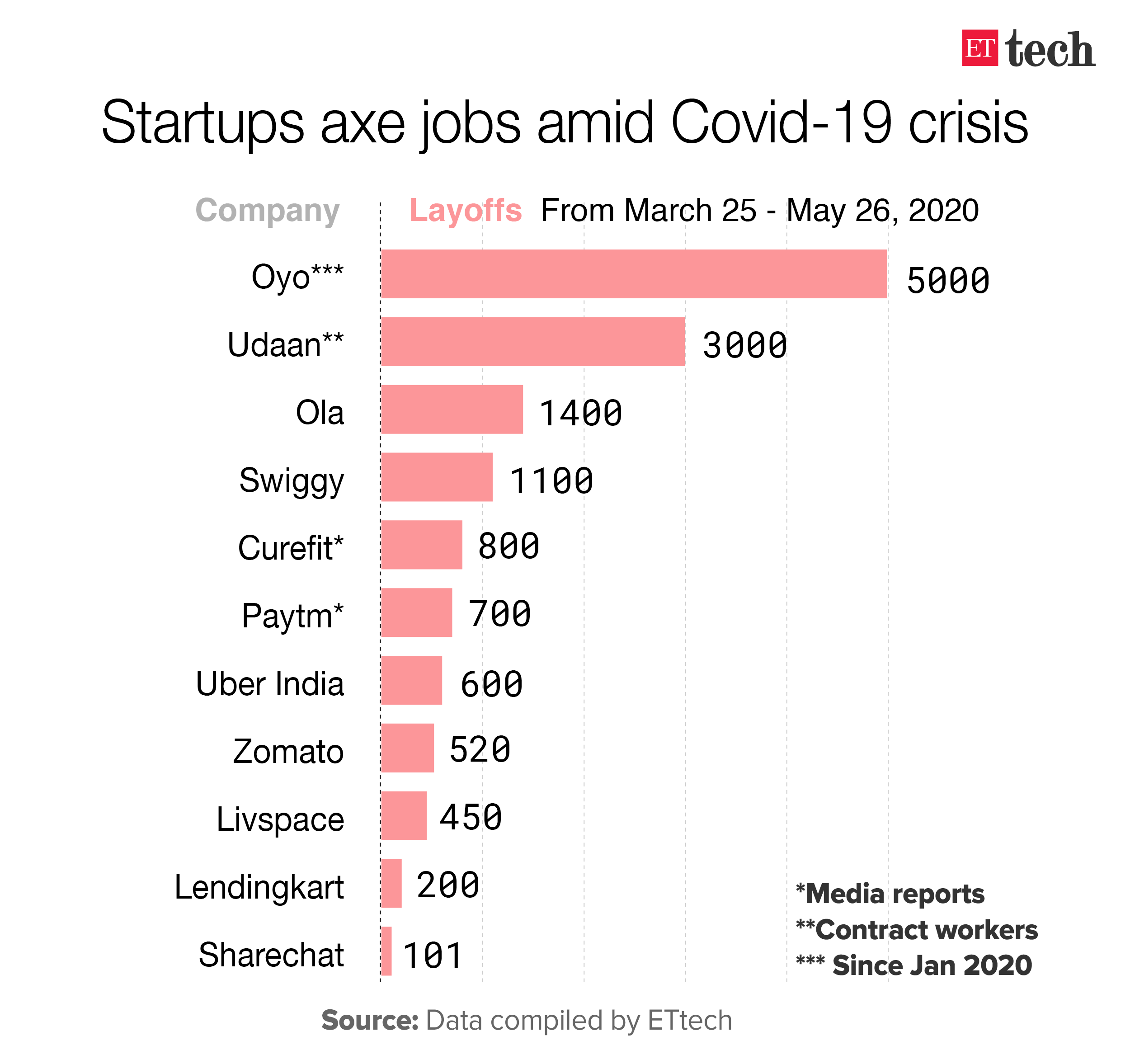Happy Tuesday!
The disruptions caused by the Covid-19 pandemic have forced many companies to downsize operations. Shared mobility major Uber laid off a fourth of its workforce in India on Tuesday. The job cuts are part of the global retrenchment exercise announced by the ride-hailing app last week.
With large parts of the world shut due to coronavirus lockdowns and most companies sticking to work for home, cab aggregators have been among the hardest hit.

Uber axes 600 jobs
The ride-hailing service has laid off 600 employees across levels and teams in India. The layoffs come a week after homegrown rival Ola slashed its headcount by a third, affecting 1,400 employees, as the company saw a 95% hit to its revenue with people staying indoors. Uber’s trip requests fell 80% globally in April.

All affected employees will receive a payout for a minimum of 10 weeks along with medical insurance coverage for the next six months, outplacement support, and will be allowed to retain their laptops along with the option to join the Uber talent directory. Read more.

Ola’s financial arm raises Rs 205 crore
Ola Financial Services (OFS) has picked up about Rs 205 crore from investment fund Falcon Edge, venture firm Matrix Partners and UK-based Gemini Investments as part of its first institutional financing round, valuing the company around $250 million. It has separately raised $20 million in working capital debt.
Why it matters
The fundraise comes as Bengaluru-based Ola looks to bet on financial services in its attempt to diversify beyond its core ride-hailing business.
Highly quotable
“The financial services space in Indian and in our global markets is significantly underserved due to weak distribution, low trust, and complicated products…We have a once-in-a-lifetime opportunity to change this with the reach and capabilities of our core ride-sharing platform.”
– Bhavish Aggarwal, cofounder & CEO, Ola
In November last year, Ola parent ANI Technologies hived off its financial services business with an aim to raise capital separately for the independent entity. Read more.

TikTok downloads slow
Fewer people downloaded Chinese video sharing platform TikTok in April and May compared to the previous two months amid reduced marketing and advertising budgets due to the Covid-19 pandemic, a persistent anti-China sentiment among users and calls for it to be banned on popular app stores due to objectionable content.

Double whammy
Over the last two weeks, TikTok has been widely criticized on social media following a fight between two content creators. Netizens have asked for the app to be banned, with hashtags like #banTikTokinIndia trending on Twitter. This has affected its Google Play Store rating, where it fell to as low as 1.2 last week, with over a million reviews critical of the app. Read more.

Liquor delivery in Odisha
Food ordering apps Swiggy and Zomato have started home delivery of alcohol in Odisha, days after first launching the service in Jharkhand. While both companies have begun liquor delivery in Bhubaneswar, other cities including Rourkela, Balasore, Balangir, Sambalpur, Berhampur and Cuttack are next in line.
Why is it significant?
Odisha is the second state where online liquor sales have been allowed. Long before India went into lockdown to contain the spread of Covid-19, a few companies had planned to launch home delivery of alcoholic beverages. But the idea never saw the light of the day. The new service is likely to ease overcrowding outside wine shops in the state. Read more.
The fear of catching Covid-19 via airflow in centrally air-conditioned offices is changing a workspace feature white-collar employees had taken for granted. A large number of companies are not switching on central AC, even though it’s peak of Indian summer. Wherever possible, windows are being opened and the job of beating the heat has fallen on pedestal fans.
Myntra, Whirlpool, NTPC, Panasonic Life Solutions, Alstom, Wakefit.co, Instamojo, HomeLane and QuickRide are some of the companies that have resumed work without air-conditioning. Nestle, Motilal Oswal Financial Services and RPG Group are among those installing new safety features. Read more.
(Graphics by Rahul Awasthi)

Leave a Reply